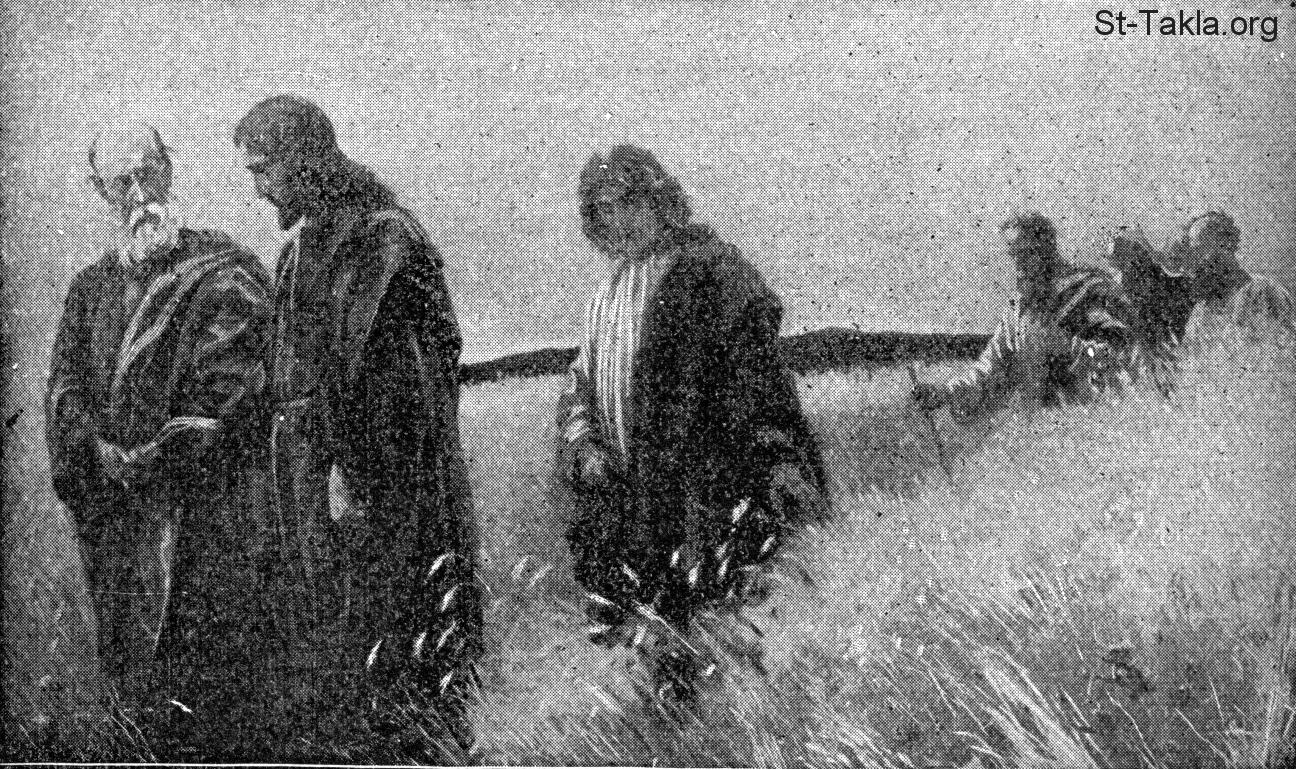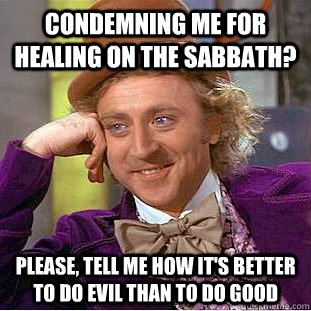In Jerusalem lived
the priests and the council of Jews called the Sanhedrin who determined what
w/as legal and Godly for all the people of Israel Jerusalem Israel Jerusalem
One group that was important in Jerusalem Jerusalem
As Jesus was passing through a grain field to
another town, his disciples and the crowds were following him, and a group from
Jerusalem
Jesus replied to them, “Meeting people’s needs is
more important than following a particular law all the time. Haven’t you read in Scripture that David once
took bread for his hungry men, even though that bread was only supposed to be
eaten by priests? And don’t you know
that the priests violate the Sabbath every week, because they do their work of
sacrificing on the Sabbath? God did not
create humanity to be ruled by the Sabbath.
Rather, the Sabbath was made for the benefit of people. Therefore, the
Son of Man is Lord of the Sabbath.”
Another Sabbath, Jesus was in a synagogue,
teaching. A woman came before him who
was bent double. Jesus called her over
and said she was healed and she straightened up. The leader of the synagogue was upset and
called out, “There are six days in which to be healed, but the Sabbath is to be
a day of rest.” Jesus responded, “This
woman was oppressed by Satan for eighteen years. Isn’t it appropriate for her to be healed on
a Sabbath day? And if one of your sheep
fell into a hole on the Sabbath, wouldn’t you pull him out again? So who is more important—a sheep or a human
being?”
The next Sabbath Jesus was in a synagogue
again. In the front of the crowd was a
man with a withered hand. The Pharisees
were looking carefully to see if Jesus would heal the man on the Sabbath, so
they can accuse him of breaking the Jewish law.
Jesus called the man up to the front of the crowd. He saw the Pharisees staring at him and he
became angry. He said, “Is it legal to
do good on the Sabbath, or evil? It is
legal to save a life, or to kill a life?”
No one answered him. He healed
the man in front of them all. The
Pharisees at this point hated Jesus and wanted to destroy him in some way.
At another point, Jesus had cast out a demon. Some of the Pharisees from Jerusalem
“You know for a fact that I cannot be casting out
demons by Satan’s power. If I am casting
out demons, I am in a war against Satan.
Would Satan give me authority to battle against himself, to tear down
his own work? Of course not. You cannot go into a soldiers house to steal
what is his unless you first attack the soldier. I am only taking these people out of Satan’s
control because I am attacking Satan, not helping him. Since you are speaking lies and evil, we know
that you are evil through and through—for what a man has in his heart, that is
what he does and says. By your words you
will be right before God, and by your words you will be condemned.”
Jesus’ family was outside when this happened, and
they were trying to take him home, because they thought he had lost his
mind. Someone said to him, “Your mother
and brothers are outside.” Jesus replied
to him, “The family of God isn’t made up of people who reject God’s work. My family is right here,“ and Jesus pointed
to his disciples, “those who hear the will of God and do it.”




